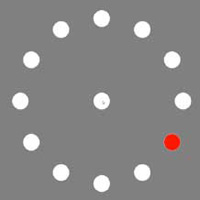The effect of head impacts on cognitive and motor control task performance
90% of concussions are mild and occur without loss of consciousness, resulting in subtle symptoms such as slowed reaction times, altered postural control, and ‘feeling in a fog’. This presents short- and long-term consequences, including an increased risk of subsequent concussions, injury, and long-term neurodegenerative conditions. Despite this, current pitchside concussion assessment tools either lack sensitivity or require a healthcare professional.

We are working to develop a new concussion assessment tool to address the shortcomings of the current assessment methods such as ImPACT and SCAT-5. This seeks to place emphasis on motor control and cognition to detect subtle and clear symptoms of concussion, with the ultimate aim of improving concussion assessments whilst also increasing accessibility and delivery of concussion assessment tools.
Here we aim to develop, validate, and assess the reliability of this newly developed tool – the Circle Sequencing Task.
Research team
Researchers: Tyler Moore
Supervisors: Dr Genevieve Williams, Dr Bert Bond, Dr Kirsty Brock

